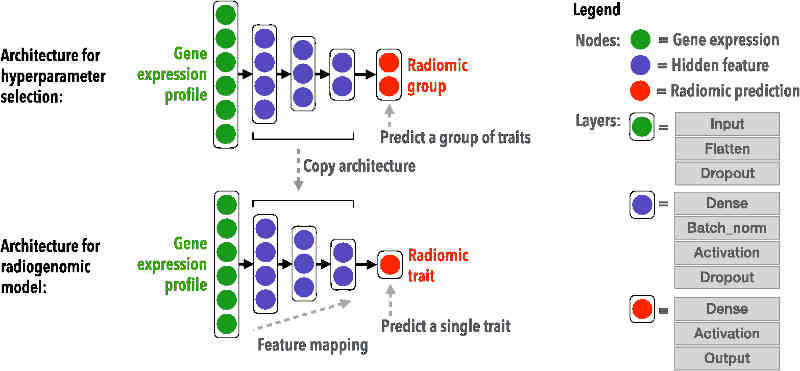Communications of the ACM
Integrating Medical Imaging, Cancer Biology with Deep Neural Networks

Deep neural networks can replicate previously reported associations between gene expression, histology, and computed tomography-derived image features of lung cancer, and identify new ones, researchers have found.
Credit: Nova F. Smedley, Denise R. Aberle, William Hsu
University of California, Los Angeles (UCLA) researchers determined that deep neural networks can replicate previously reported associations between gene expression, histology, and computed tomography (CT)-derived image features of lung cancer, and identify new ones.
The researchers tapped a dataset of 262 patients to train their networks to predict 101 features from a collection of 21,766 gene expressions, then assessed their predictive ability on an independent dataset of 89 patients, comparing it to that of other models within the training dataset.

Credit: Nova F. Smedley, Denise R. Aberle, William Hsu
Their networks outperformed the other models at representing these datasets, and were generalizable to datasets from another population; gene-masking outcomes also implied that the forecast of each imaging feature was linked to a unique, biologically-controlled gene expression profile.
UCLA's William Hsu said, "We hope this approach increases the radiologist's confidence in assessing the type of lung cancer seen on a CT scan."
From SPIE Newsroom
View Full Article
Abstracts Copyright © 2021 SmithBucklin, Washington, DC, USA

No entries found